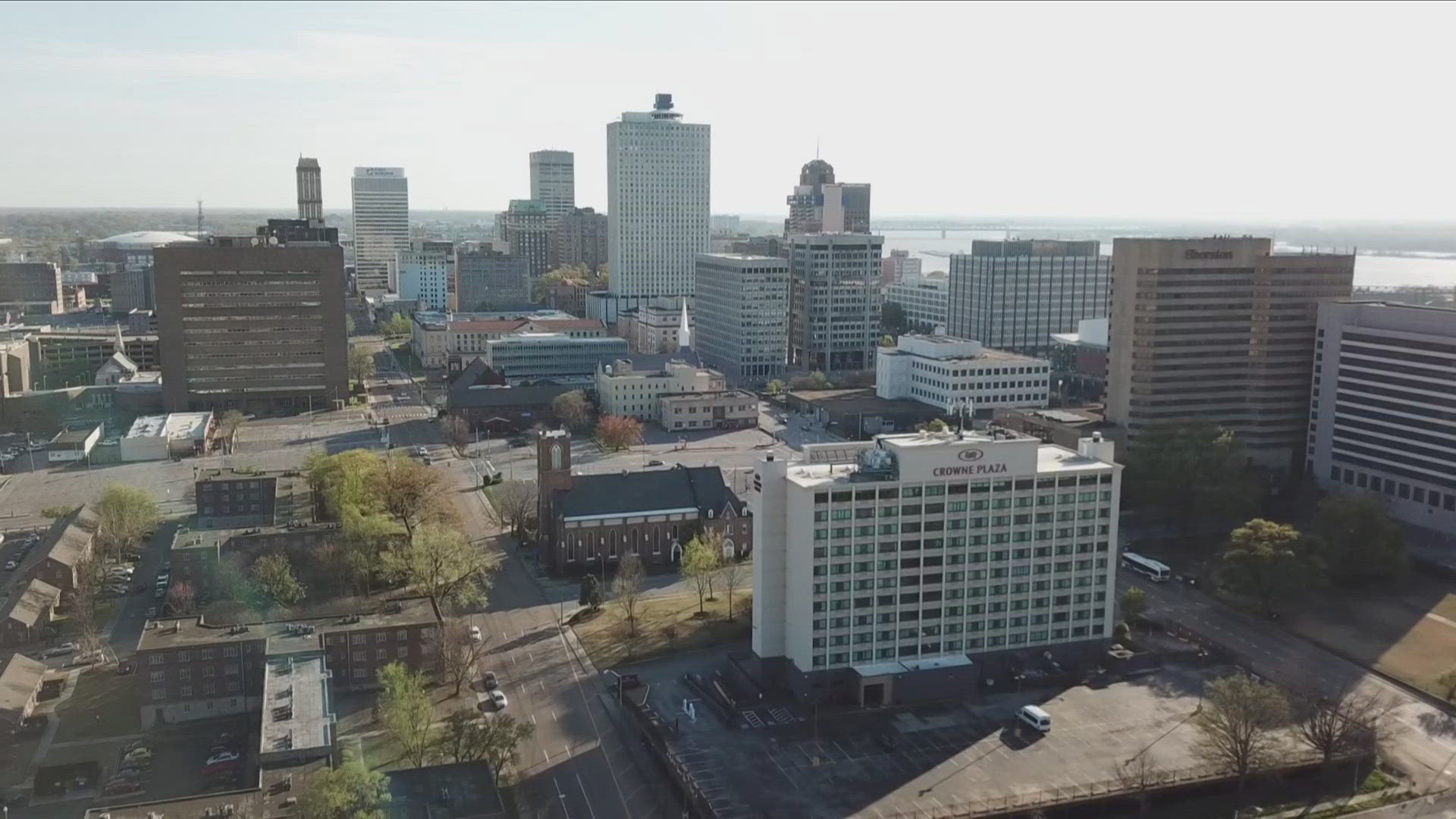MEMPHIS, Tenn. — Memphians have heard a lot about the city's crime crisis and education crisis, but Mayor Young said addressing its population crisis is a new priority.
We don't hear much about Memphis' population decline, but it's a serious issue and one on which the new administration of Memphis Mayor Paul Young said is keenly focused. It took decades to get to where the city is now. Back in the late 1900s, Memphis grew by gobbling up surrounding areas that were unincorporated, such as Hickory Hill and Cordova, giving the false impression the city was growing.
But the numbers tell the story: In 1990, Memphis had 610,337 people, according to U.S. Census data. By the 2000 census, the population had grown to 650,100. But when the annexations stopped, the numbers started falling. In 2010, the US Census showed the Memphis population at 646,889. Ten years after that, the number of Memphians fell to 633,104. But the decline in just the past three years, according to census estimates, is eye-opening. The 2023 estimated population now sits at 618,639 - a drop of 14,465. The U.S. Census estimates the city lost 5,200 people in the last year, or 14 people every day.
So, where are all those people going? An analysis shows the Memphis suburbs are picking up some of the gains, but some people are moving out of the area altogether. And all those people leaving shows up in the form of blight. Empty homes where people used to live and empty businesses where people used to work and shop. Another ramification showing the decline is the city's tax base, because as it shrinks, there's less money to run the city.
It's something Mayor Young knows all too well. That's why he brought up the population decline last April in his first 100 days. He drew a standing ovation when he said: "If you're a young person thinking your talents would be better served elsewhere, I'm going to ask you to reconsider as well. Because, quite simply, Atlanta doesn't need you. Chicago doesn't need you. New York and Nashville don't need you. Memphis needs you!"
Young is referring to former Memphians like William Woods, 39, who moved to Charlotte two years ago. He told ABC24's Richard Ransom that Memphis doesn't offer enough choices for young professionals like him.
"I wanted opportunities to grow, but there aren't a lot of them in Memphis, and so people seek opportunities elsewhere," Wood said.
Crime is another issue.
"The thing I don't miss is the crime," he said. "I'll say that. For Mother's Day, I came home to visit my Mom and also hang out with friends. Within the first four hours, I was woken with a car break-in."
Mayor Young said he is laser focused on addressing the population decline.
"It's almost like a chicken and an egg," Young said. "All of these things are connected. In order to recruit job opportunities, we have to address public safety. In order to address public safety, you have to have opportunities for these people that are making decisions to go into a life of crime. And so from our perspective, we're working to do all of these things."
Young points to the recent decision by Elon Musk to build the world's largest supercomputer in Memphis as an example of a "significant win" that can start to change the narrative about Memphis.
Rita Morrow graduated from Hamilton High School more decades ago than she cares to count. But she's glad to hear good news about the city where she grew up. She is another professional who moved away to pursue her business career in Atlanta and now lives in Louisville, Kentucky.
"I still love my hometown," she said. "I take my grandchildren there because I want them to know where I grew up."
Her hope for Memphis?
"That we start with the kids, right at the ground level," she said. "Educating them. Making sure they have hope for a future."
For his part, Wood is hopeful Memphis might lure people like him to someday come home.
"Honestly, I miss the food," he said. "There is hands down no comparison in Charlotte to Memphis food."
As those Census numbers show, the population crisis didn't happen overnight. Young said it won't be fixed quickly, either. Yet, he refuses to give up.
"We're going to continue to do the things to ensure Memphis becomes the next great city of the South," Young said. Every few years you hear about a city that's having an amazing run like Nashville has had over the past 10-15 years. I think it's Memphis' turn."
Young said he's finding solutions by having his team look at cities such as Detroit, which has fought much more severe declines in population, but more recently has an increasing amount of evidence that's it's turned a corner and drawing people back to the inner city. Young said Detroit attributes that success to things like deeply investing in technology for public safety as well as new ways to intervene and prevent crime. Detroit is also addressing building up blighted neighborhoods with infill developments, which build the kinds of homes people want to move into, not to mention making businesses want to locate there.

